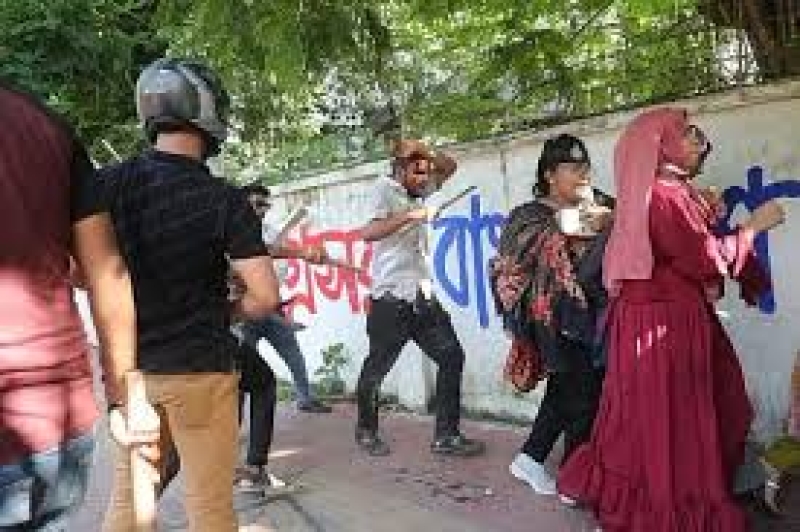- BNP fast-tracks cabinet plans after resounding victory |
- Modi Calls Tarique, Pledges India’s Support |
- Bangladesh Set for First Male PM in 35 Years |
- Presence of women voters is noticeable at polling stations in Kalapara |
- Tarique Rahman wins both Dhaka-17, Bogura-6 seats |
Upholding the Liberation War Spirit Amidst Student Assaults
Who is Responsible for Dividing Youth with Discrimination?

Recent assaults by Bangladesh Chhatra League (BCL) activists on quota reform protesters at Dhaka University have sparked intense debate on the preservation of the liberation war spirit among the youth.
In Bangladesh, students traditionally aspire to academic pursuits upon entering university, aiming to contribute globally. However, pervasive issues like age limit extensions for public service and reforms to the quota system for government jobs often propel them onto the streets, where peaceful protests sometimes turn violent, leaving many physically and emotionally scarred.
The recent movement by "general students" demanding quota reforms, once peaceful, has now been marred by incidents of brutality. Students and teachers across universities have been assaulted late at night, leading to injuries and hospitalizations.
Blame for the stagnant state of higher education 53 years after independence falls squarely on the incumbent government, which professes to uphold the ideals of the liberation war. The resulting disillusionment among the youth is palpable, raising questions about the necessity of forcing them into opposition.
"Demands" met through violence are nothing new, yet in this era of global preparation, students should focus on national development rather than street protests. The poisoning of young minds with anguish and recurrent street rallies begs the question: why?
Despite having 350 lawmakers, parliament fails to address the grievances of the younger generation or advocate for comprehensive job system reforms. The absence of parliamentary representation exacerbates the students' frustration.
The government's responsibility to meet justified demands without bloodshed remains paramount. Previous protests six years ago resulted in concessions, yet subsequent complications, including legal challenges to quota reforms, have reignited tensions.
Who shoulders the responsibility for crushing the spirit of today's youth, branding them with discriminatory labels like "razakar"? Policymakers acknowledge the need for quota reforms but fail to initiate effective plans, betraying the spirit that once unified the nation's youth.
The government must recognize the students' unity in demanding fair employment opportunities and should empathize rather than treat them as adversaries. Enhancing the spirit of liberation war cannot be achieved through violence against students, but through proactive measures like establishing a commission for quota reforms that ensures equal opportunities based on merit, with considerations for marginalized groups and women.
The choice is clear: perpetuate division and discontent among the youth or uphold Bangladesh's liberation war spirit in their hearts and minds through inclusive policies and dialogue.
Author Information: Dr. Nadim Mahmud, Researcher at California University. Email: nadim.ru@gmail.com

